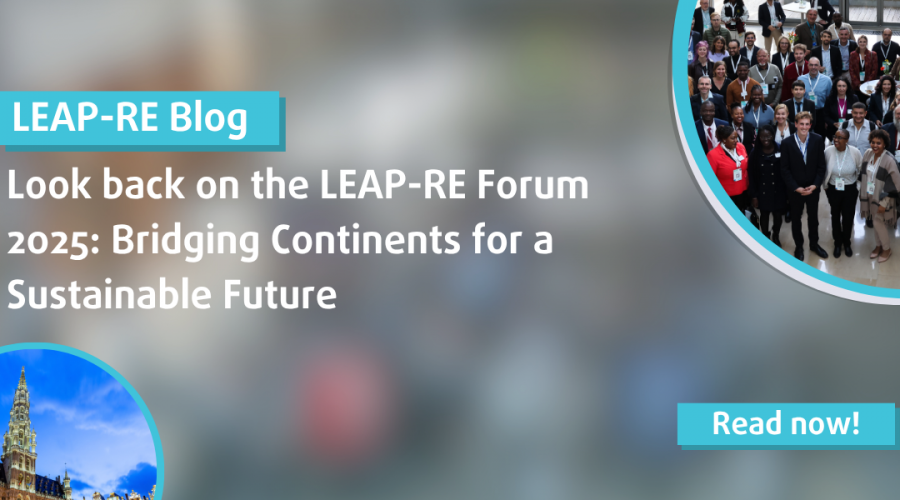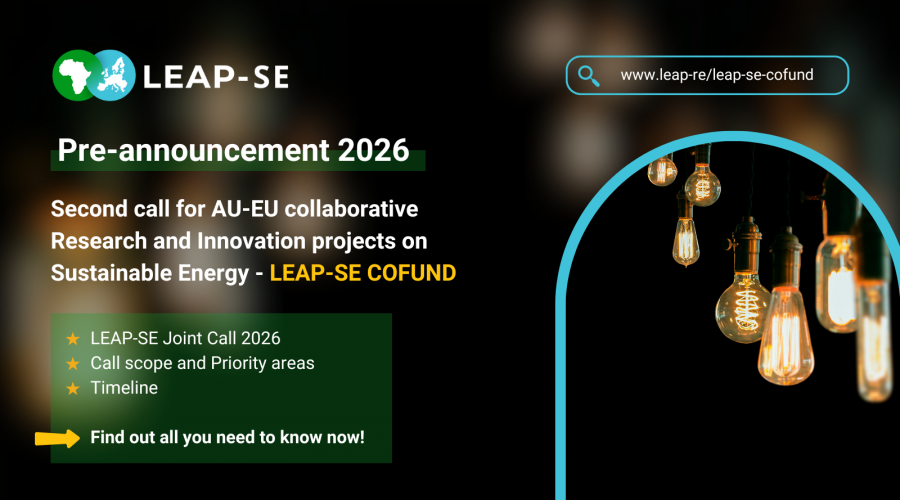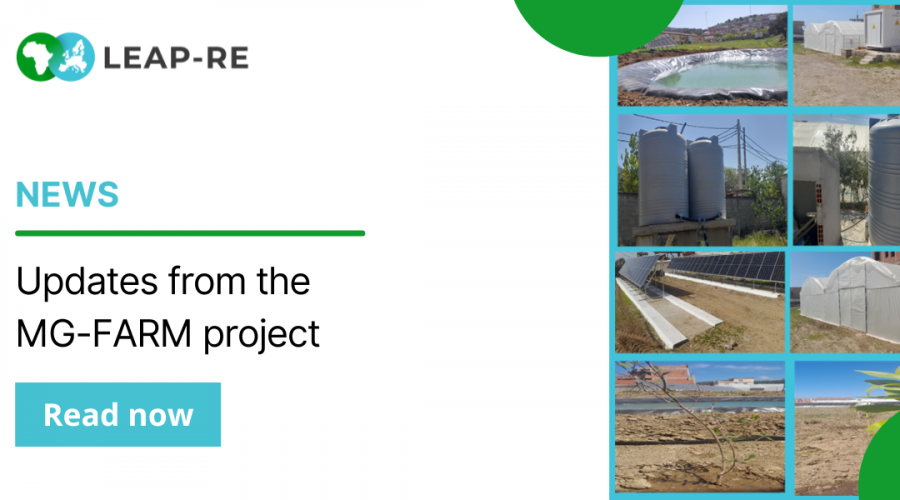Sustaining the Momentum of LEAP-RE Beyond 2026
Since its launch in 2020, the LEAP-RE programme has stood as a landmark of Africa–Europe cooperation in renewable energy research, development, and innovation (RDI). By linking more than 240 organisations across 35+ countries, LEAP-RE has demonstrated how equitable partnerships can turn shared ambition into measurable impact.
Through a unique co-funding model and deep institutional collaboration, LEAP-RE has advanced over 30 research and capacity-building projects that directly contribute to the AU–EU Innovation Agenda, the Africa–EU Green Energy Initiative, and the Global Gateway’s sustainable energy pillar. From clean technology pilots to inclusive research networks and training programmes, its results have begun to shape a more connected and resilient RDI ecosystem.
A Turning Point for a Flagship Partnership
As LEAP-RE enters a new phase in 2026, the partnership finds itself at a crucial crossroads. The question is not whether the initiative has proven its value, that is already evident, but how to sustain and scale its achievements so that they continue to deliver tangible benefits for both continents.
Our recent deliverable: D6.1 Value proposition and adoption drivers of future partnershiphas highlighted a key reality: while LEAP-RE has generated a strong pipeline of innovation, the long-term success of this ecosystem depends on maintaining the structures and relationships that made these outcomes possible.
The co-funding mechanism established under LEAP-RE has been particularly noteworthy. It has shown that joint investment between Africa and Europe can drive both ownership and efficiency in renewable energy research a lesson that will be vital for future RDI collaboration frameworks.
In parallel, the LEAP-SE consortium members are launching the second edition of a transnational joint Call for proposals in 2026, co-funded by European and African national/regional research funding agencies (members of the LEAP-SE consortium), following the first call launched in 2025. The selected projects will focus on achieving goals of mutual benefit based on a balanced and cooperative approach. Particular attention will be given to strengthening the impact of R&I-supported activities for the well-being of society in Europe and Africa.
Discover the LEAP-RE portfolio of funded projects and their advancements!
The LEAP-RE Annual Forum is also a great way to showcase the work achieved within these projects, providing a platform where project consortia present their final results and ongoing innovations. Day 1 of the forum focuses on knowledge production, research and innovation capacities, market introduction, upscaling, replication of innovation and a focus on the upcoming LEAP-SE Call. Day 2 is dedicated to Scientific and Methodological Clustering activities, for example, the Grid modelling cluster and the Water, Energy and Food Nexus cluster or sessions where projects like those in the Pillar 1 portfolio present their final results and engage in technical deep-dives. On day 3, the community transitions to the Innovation Fair, where LEAP-RE, alongside several partner projects from its portfolio, showcases its path, both back and forward, to a wider public, industry, and investor audience.
Want to find out more about the event? Join us online! All the links you need in one place!
Protecting What Works
Stakeholders have expressed a growing demand for continuity in LEAP-RE’s most impactful components: the online collaboration platform, the Renewable Energy Schools, policy roadmaps, and stakeholder fora. These are not just tools, they are living infrastructures of cooperation. Allowing them to fade, or dispersing them across various networks, risks fragmenting a partnership that has become a model for effective transcontinental collaboration.
Strategic recommendations
Ensuring that these assets continue to serve the AU–EU innovation community will become crucial in order to preserve momentum, coherence, and trust.
To anchor and expand LEAP-RE’s contributions for the long term, the creation of an International Non-Profit Association (INPA) is identified as the only viable and forward-looking solution. Such an INPA would provide a formal structure to ensure institutional continuity, effective governance, and strategic alignment. Furthermore, an INPA is designed to act as a neutral and agile operational backbone, coordinating stakeholders while expertly avoiding duplication with other platforms, thereby enabling long-term resource mobilisation, stakeholder engagement, and policy alignment.
Looking Ahead
The next phase of AU–EU Science, Technology and Innovation collaboration on Sustainable Energy must build on what LEAP-RE has achieved, turning short-term project cycles into long-term strategic partnerships. Discussions are already underway on how best to ensure continuity, with the shared goal of keeping LEAP-RE’s community connected and active beyond 2026.
The foundations have been laid. The challenge now is to ensure they support the next generation of joint endeavours, where science, policy, and partnership continue to power a more sustainable energy future for both continents.
Stay tuned for more information about the upcoming LEAP-SE Call 2026!




